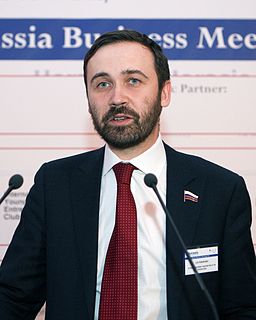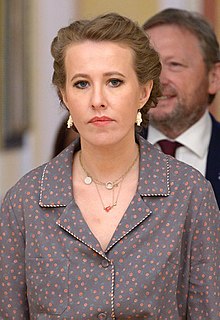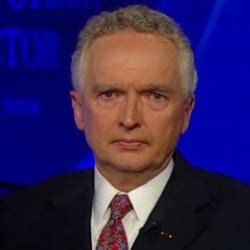A Quote by Ivo Daalder
Putin wants nothing less than to return Russia to the center of global politics by challenging the primacy that the United States has enjoyed since the end of the Cold War.
Related Quotes
Much as Cold War nuclear strategists could argue about winning a nuclear war by having more survivors, advocates of a Global Warming War might see the United States, Western Europe, or Russia as better able to ride out climate disruption and manipulation than, say, China or the countries of the Middle East.
The era when the United States was the dominant global power is steadily coming to an end, and it must find a way of acknowledging this and framing its ambitions and interests accordingly. Instead of claiming the right to continuing primacy in east Asia, for example, it should seek to share that primacy with China.
It shouldn't surprise any American to know that Russia uses its money and its intelligence services to spread disinformation, use subterfuge and deception and manipulation, to try to divide political opinion within the United States, within any Western European country, or among NATO countries. That's one of the techniques that Russia has used for decades, during the Cold War and during the Putin era.
The threat of mutually assured destruction worked for the United States during the Cold War because it had proved its willingness to drop nuclear bombs on enemy cities at the end of World War II. It might work less well for Israel, because the Israeli Air Force has never deliberately targeted a large civilian population center, and its leaders have said its morality would not permit it do so.
Putin is just maneuvering. He wants to be respected. He wants to be an important player in global politics. He wants people to negotiate with him and he wants to have the trade-offs here and there and spheres of influence. He's very much a person of the 20th century in the global and geopolitical space.
Putin is now nationalist. And what he does is, he tells the Russian people, OK, you may have a little less chicken in your pot, but I'm making Russia great again. Look what we're doing all other the world. Everyone is paying attention to us. And Russia is a great power, on par with the United States and others.
Putin doesn't need Donbass (east Ukraine). He wants to determine the fate of the world at talks with a U.S. President, putin is dreaming of getting a deal with the United States about a new-old order for the world, when the world is split on zone of influence. When you cannot interfere in someone else's zone. Not even to mention internal politics.




































